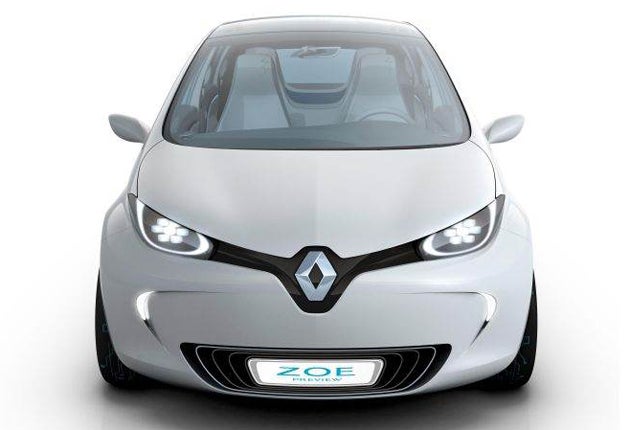Renault wins its war with 'Zoe'

Your support helps us to tell the story
From reproductive rights to climate change to Big Tech, The Independent is on the ground when the story is developing. Whether it's investigating the financials of Elon Musk's pro-Trump PAC or producing our latest documentary, 'The A Word', which shines a light on the American women fighting for reproductive rights, we know how important it is to parse out the facts from the messaging.
At such a critical moment in US history, we need reporters on the ground. Your donation allows us to keep sending journalists to speak to both sides of the story.
The Independent is trusted by Americans across the entire political spectrum. And unlike many other quality news outlets, we choose not to lock Americans out of our reporting and analysis with paywalls. We believe quality journalism should be available to everyone, paid for by those who can afford it.
Your support makes all the difference.Morris and Maurice may have disappeared from both roads and the birth columns long ago but you will soon be able to take the wheel of a Zoe.
A Paris court has dismissed a complaint from two French families called Renault against a decision by the car-maker of the same name to brand its new electric car, the "Zoe".
Both of the plaintiff families have young children with that name. They feared that anyone called Zoe Renault would endure lifetime mockery if the Renault Zoe was to become as well known as the Renault Espace or Renault Clio.
"Can you imagine what little Zoes would have to endure in the playground, and even worse, when they get a little bit older and someone comes up to them in a bar and says, 'Can I see your airbags?' or 'Can I shine your bumper?'," the families' lawyer, David Koubbi, said. (In France "airbags" are a slang-name for breasts.)
However, the tribunal in Paris dismissed the families' request for an injunction barring the carmaker from using the name. The presiding judge, Magali Bouvier, ruled the plaintiffs had failed to prove any "direct or personal prejudice" or "imminent peril".
Mr Koubbi said that the war was just beginning and that the families would appeal "before other jurisdictions" – implying a readiness to pursue the action as far as the European Court of Human Rights.
Join our commenting forum
Join thought-provoking conversations, follow other Independent readers and see their replies
Comments